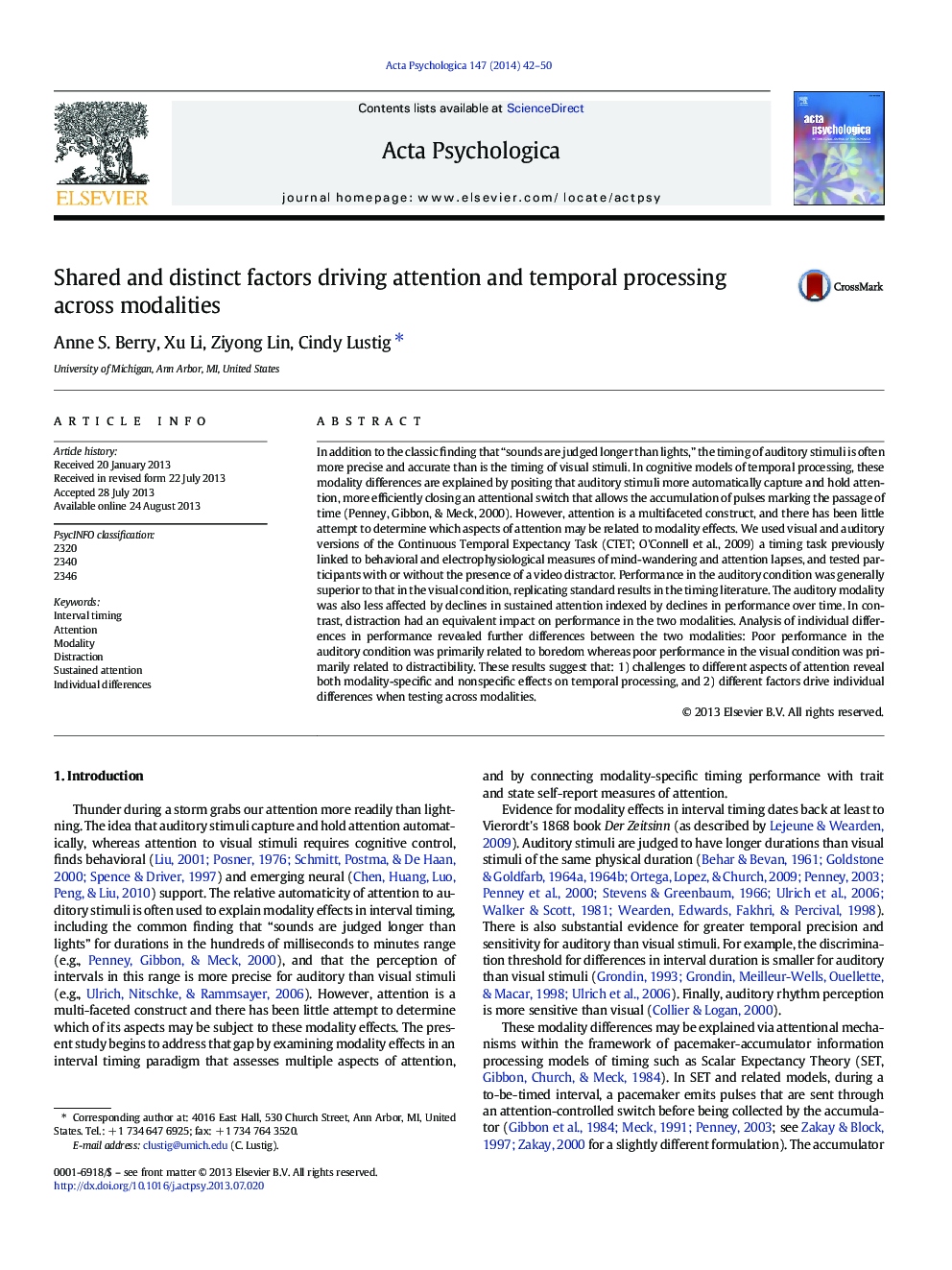| کد مقاله | کد نشریه | سال انتشار | مقاله انگلیسی | نسخه تمام متن |
|---|---|---|---|---|
| 7277897 | 1473611 | 2014 | 9 صفحه PDF | دانلود رایگان |
عنوان انگلیسی مقاله ISI
Shared and distinct factors driving attention and temporal processing across modalities
ترجمه فارسی عنوان
فاکتورهای به اشتراک گذاشته شده و متمایز که توجه و پردازش زمانی را در تمام شرایط انجام می دهند
دانلود مقاله + سفارش ترجمه
دانلود مقاله ISI انگلیسی
رایگان برای ایرانیان
کلمات کلیدی
2320، 2340، 2346، زمان بندی فاصله، توجه مدیتیشن، حواس پرتی، توجه دائمی، تفاوتهای فردی،
موضوعات مرتبط
علوم زیستی و بیوفناوری
علم عصب شناسی
علوم اعصاب شناختی
چکیده انگلیسی
In addition to the classic finding that “sounds are judged longer than lights,” the timing of auditory stimuli is often more precise and accurate than is the timing of visual stimuli. In cognitive models of temporal processing, these modality differences are explained by positing that auditory stimuli more automatically capture and hold attention, more efficiently closing an attentional switch that allows the accumulation of pulses marking the passage of time (Penney, Gibbon, & Meck, 2000). However, attention is a multifaceted construct, and there has been little attempt to determine which aspects of attention may be related to modality effects. We used visual and auditory versions of the Continuous Temporal Expectancy Task (CTET; O'Connell et al., 2009) a timing task previously linked to behavioral and electrophysiological measures of mind-wandering and attention lapses, and tested participants with or without the presence of a video distractor. Performance in the auditory condition was generally superior to that in the visual condition, replicating standard results in the timing literature. The auditory modality was also less affected by declines in sustained attention indexed by declines in performance over time. In contrast, distraction had an equivalent impact on performance in the two modalities. Analysis of individual differences in performance revealed further differences between the two modalities: Poor performance in the auditory condition was primarily related to boredom whereas poor performance in the visual condition was primarily related to distractibility. These results suggest that: 1) challenges to different aspects of attention reveal both modality-specific and nonspecific effects on temporal processing, and 2) different factors drive individual differences when testing across modalities.
ناشر
Database: Elsevier - ScienceDirect (ساینس دایرکت)
Journal: Acta Psychologica - Volume 147, March 2014, Pages 42-50
Journal: Acta Psychologica - Volume 147, March 2014, Pages 42-50
نویسندگان
Anne S. Berry, Xu Li, Ziyong Lin, Cindy Lustig,
